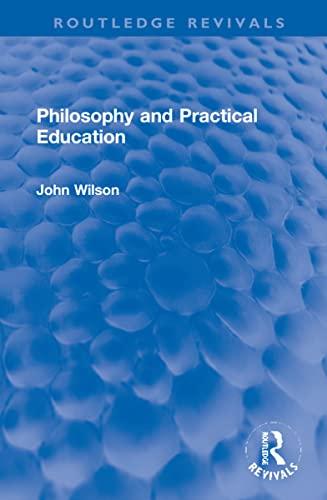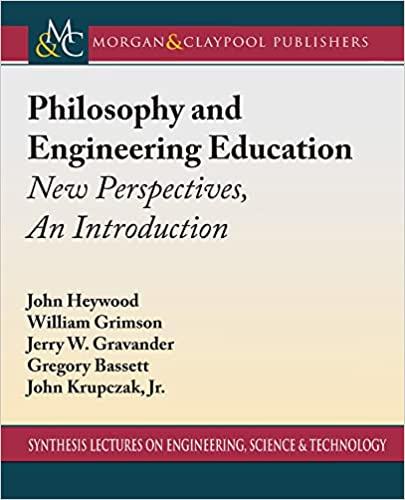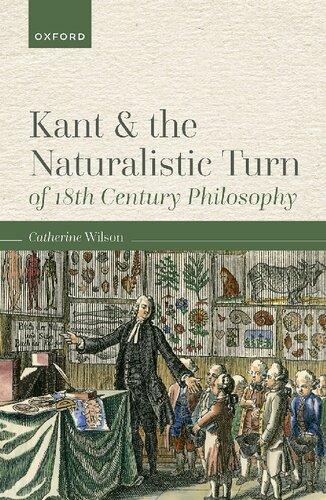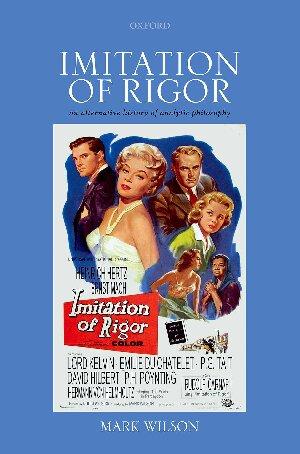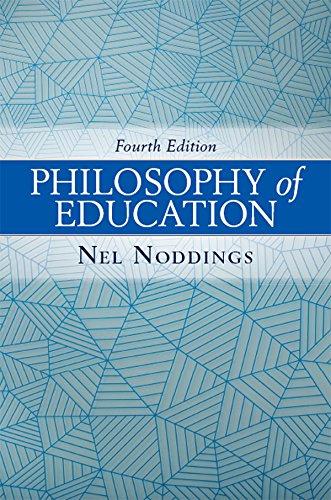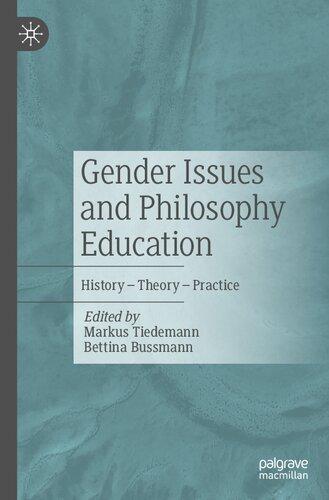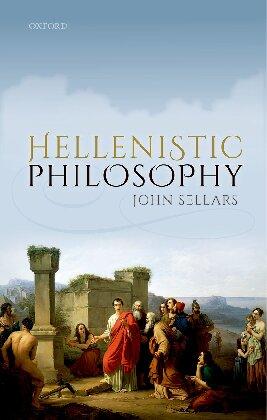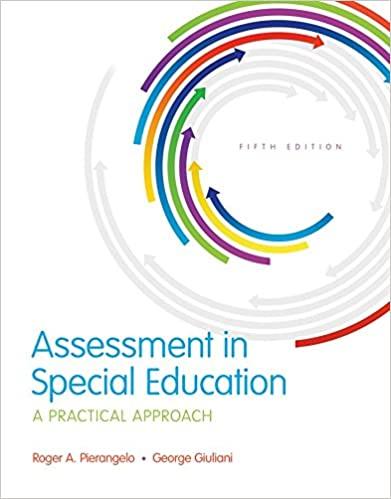Philosophy and practical education
John Wilson
Department of Educational Studies University of Oxford
Routledge & Kegan Paul London, Henley and Boston
First published in 1977 by Routledge & Kegan PaulLtd 39 Store Street, London WC1E 7DD, Broadway House, Newtown Road, Henley-on-Thames, Oxon RG9 1EN and 9 Park Street, Boston, Mass. 02108, USA
Set in IBMPressRoman by Express Litho Service (Oxford) and printed in GreatBritain by Lowe & Brydone Printers Ltd Thetford, Norfolk
©John Wilson 1977
No part ofthis book may be reproduced in any form without permissionfrom the publisher, exceptfor the quotation ofbrief passages in criticism
British Library Cataloguingin Publication Data
Wilson, John
Philosophy and practical education.— (Students library ofeducation).
1. Education— Philosophy I Title II Series 370.1 LB17
ISBN 0 7100 8675 X
The Students Library of Education has been designed to meet the needs of students of Education at Colleges of Education and at University Institutes and Departments. It will also be valuable for practising teachers and educationists. The series takes full account of the latest developments in teacher-training and of new methods and approaches in education. Separate volumes will provide authoritative and up-to-date accounts of the topics within the major fields of sociology, philosophy and history of education, educational psychology, and method. Care has been taken that specialist topics are treated lucidly and usefully for the non-specialist reader. Altogether, the Students Library of Education will provide a comprehensive introduction and guide to anyone concerned with the study of education, and with educational theory and practice.
Preface
There are many ways of relating philosophy to education: this book attempts only one way. It arises from protracted discussions with teachers and others, and from the practical necessity of having to arrange lectures and seminars in a university department where time is short and most of the clientèle have little or no philosophical training.
Under such conditions (which apply to most contexts in which ‘philosophy of education’ goes on), I do not think much is gained by attempting some general coverage of topics usually thought appropriate to ‘philosophy of education’; partly because it is not clear that these topics are appropriate, and partly because they cover far too much ground. This approach may dilute philosophical thinking to the point of tastelessness and result in potted philosophical doctrines which are regurgitated in examinations, thus boring both examinees and examiners. Nor is anything gained, other than a deceptive appearance of trendiness, by a prolonged consideration of contemporary ‘ideologies’ or ‘movements’ or fashionable educational sages. Finally, whilst it is important (for both pedagogical and philosophical reasons) that philosophers of education should have had wide experience in practical education, it does not help teachers if discussion gets bogged down at the level of very specific, day-to-day practical problems; they have to understand how such problems lead us, pretty quickly and directly, to conceptual points. Unless they can both get the taste, and see the relevance, of tough-minded conceptual argument, ‘philosophy of education’ will be, for them, largely a waste of time.
Accordingly I have selected a number of topics of which I take it to be true that (1) they are necessarily of direct practical concern to teachers and other educators; (2) an increase in our conceptual clarity suggests, fairly unambiguously, certain kinds ofpractical action; (3) they have not been properly dealt with in existing philosophical literature. I owe a debt to past and present student-teachers and others for help
Preface
and advice in making this selection; and another debt to the work of Professor Peters, Professor Hirst and others, who have succeeded in making something serious and respectable out of 'philosophy of education'.
That I shall refer to some of this work frequently and critically should be taken to indicate that we now have something worth criticizing; any conscientious author in this field must stand on their shoulders, however heavily.
It seems to me necessary, or at least pedagogically useful, to make some fairly strong and obvious connections with this work. A possible criticism of the present state of the subject is not only that, as Peters says, ‘philosophy of education is, at the moment, suffering from too little fundamental divergence in points of view’ (Peters, 1973 , p, 4)— that, indeed, might inspire yet more giant theses about 'the aims of education', something we can well do without: it is also, and I think more importantly, that it suffers both in style and content (if indeed these are separable in philosophy) from a lack of dialectic. I make no apology, therefore, for some quotation and detailed criticism of passages from the current literature. To leave it entirely on one side would be not only improper but also unrealistic, since it continues to exercise a considerable influence in most of the relevant institutions.
Finally I must express my particular gratitude to Richard Peters for many helpful suggestions; and also to Celia Dusoir for many hours of fruitful philosophical discussion.
JBW Oxford, 1976
Introduction
In the Preface I promised that the topics covered in this book would be ‘of direct practical concern to teachers’, and played safe by adding ‘and other educators’: thereby embracing local authorities, ‘curriculum developers’, and even perhaps professors of education. In one way, such a wide promise is easy to keep: almost anything ‘to do with education’ is or may be ‘of direct practical concern’ to teachers and others particularly if they can find the time and energy to stand back from their daily work, read books, reflect about ‘aims’ and so forth. But obviously in another way this is a cheat; and we would naturally distinguish between things which almost any teacher has to be concerned about in a ‘direct’ and ‘practical’ way, such as maintaining discipline and teaching his subject(s), and things which he may (perhaps ought) to be concerned about, but which are not necessarily his immediate responsibility, such as the curriculum, or setting and streaming, or whether there is any sensible educational aim marked by ‘autonomy’.
The trouble with this distinction, however, is that it seems to depend almost entirely upon contingent and very changeable social facts. Thus one could think of schools in which someone else (not the classroom teacher) in effect copes with the maintenance of discipline, or in which a lot of the subject-teaching or information-giving is done by teaching machines or closed-circuit television; or conversely, schools in which teachers are made collectively responsible for the curriculum, grouping in the school, and the choice of educational aims. So even for practical (let alone conceptual) purposes, in a changing world, this distinction is too fragile; and clearly we may not get much further by conducting a ‘linguistic analysis’ of the word ‘teacher’ that may tell us nothing interesting. So how can we proceed?
In practice, of course, it is important for a particular teacher in a particular school to know what he has to do (i.e. in order to avoid getting the sack, making his own life a misery, etc.) as against what could be helpful to him. It may also be useful to look at what other
Introduction
teachers, in different societies or different conditions from himself, are actually concerned with. But we are surely led inevitably to some such questions as ‘What ought teachers to regard as “of direct practical concern" to themselves?’; and by ‘ought’ here we must not imply only that it would be nice if teachers added certain tasks to those tasks they had to perform. Too many books and institutions of teacher-education take it for granted that teachers have to engage in certain tasks (which are, goodness knows, demanding enough already) and then proceed to load them down with other tasks which they are made to feel they ‘ought’ to undertake learning more about philosophy, psychology and sociology, discussing ‘the aims of education’, ‘curricular theory’, and a thousand and one other things. We have somehow to step back from or get behind this picture.
Suppose, as I shall argue, that there are certain things which ought to go on in schools and which are very important. These things might not be things which teachers have to do, in the sense that if they do not do them they get the sack; but equally they might not be just things which it would be nice if teachers could somehow manage to add to their tasks they might be much too important for that, indeed they might be more important than what teachers have to do. To take a parallel, if I wish to stress the importance of love (and whatever activities and arrangements might generate or reinforce love) in marriage, I shall not want to say either that there has to be love in marriage, in the sense that marriage is contractually impossible without it, or that ‘ideally’ it is desirable to have love. I shall want to say that love may be more important than the contractual or ‘practical’ aspects of marriage, and certainly more important than any ‘nice’ trimmings or top-dressings (as perhaps having a nice house or long holidays together); I shall want to represent it not as an ideal but as some kind of necessity.
But what kind of necessity? There is another danger to avoid here, the danger of building up one’s own preferences (values, prejudices, fantasies, etc.) into some ‘theory of education’ which one then claims as ‘necessary’. Thus for some people it appears ‘necessary’ that schools should be ‘progressive’, and give children as much ‘freedom’ as possible; to others, that there should be ‘standards’, ‘discipline’, ‘serious study’, ‘a Christian atmosphere’, and so on. These are the debates that go on all the time, and very boring they are too. On the other hand, it will not help to attempt any formulation of conceptual or logical necessity, at least if this is too simple or superficial. Thus we could, of course, show that certain things followed from the meanings of such words as ‘teacher’ and perhaps ‘school’ or ‘education’; but then it would always be possible for someone to make the move of saying ‘All right, then, let’s not have teachers but “child helpers”: not schools but “convivial institutions” ’, or whatever linguistic change would fit his preferred picture.
Introduction
Nevertheless, there are certain permanently valid truths to which one can point. One might say, very roughly, that these truths lie not so much in the use of various words as behind it, so that they are not easily escaped simply by using different words. Thus I shall try to show, in chapter 2 that there is a certain concept (whether or not we are going to mark it by the word ‘school’) that any serious educator must work with; or again, in chapter 3 that there are certain principles (whether or not marked by ‘discipline’) which are logically necessary for all or most human enterprises. We are not, then, only or even chiefly concerned with ‘the meaning of words’, we are concerned rather to elicit from words those concepts and principles which are, as I shall try to show, permanent and necessary features of serious education. The word ‘serious’ is worth stressing, because this procedure both requires some seriousness in the first place, and is intended to make us more serious. The seriousness required consists essentially of the recognition that we are, in fact, in a great deal of confusion about these concepts and principles, and a sincere desire to get clearer. We become more serious by pursuing that desire: getting clearer frees us from the pressures of prejudice, fantasy, fashion, inertia and the unconscious corruption of institutional arrangements which we take for granted. These are the chief enemies both of philosophy and of effective education. For I maintain (see Wilson, 1975) that education suffers, not so much from lack of money or effort or enough ‘research-findings’ produced by psychologists and social scientists, but rather from the lack of seriousness. We need clarity, common sense, and a refusal to tolerate nonsense or be bullied by contemporary climates of opinion. If a person pursues the ideas of common sense and clarity far enough, he inevitably ends up by doing philosophy. Too many people, including (I fear) some teachers, still see ‘philosophy’ as something rather remote, high-minded, grand, ‘abstract’, and irrelevant to practical concerns. The opposite is true; nearly always, in disputes about educational practice, the most ‘practical’ thing a teacher can do is to sit down and think hard or, better, argue with other people about what is meant by the terms that crop up in such disputes. (There are hundreds of such terms: ‘education’, ‘integration’, ‘examination’, ‘comprehensive’, ‘mixed ability', ‘discipline’, ‘creativity’ and so on. In this book I have had to confine myself to a few that seem of particular importance.) As he does this, he becomes much more critical of the vagueness or nonsense that is so often apparent in what is said and written (even by well-known and highly-placed ‘authorities’); and he comes to get a firmer grasp of the basic truths and principles that should govern our thought and action in education.
In the following chapters I shall try to make some of these truths clearer; and in so far as I am successful, it should also become clear just how far, and how disastrously, these truths have been forgotten.
What is basically wrong (as I see it) with practical education, in this country and other similar societies, results from this forgetfulness. Instead of retaining a firm grasp of the logic of these truths, we waste our time in pointless conflicts between ‘progressive’ and ‘traditional’, ‘child-centred’ and ‘authoritarian’, ‘left-wing’ and ‘right-wing’ prejudices. It is as if scientific matters were at the mercy of different gangs of alchemists and astrologers, or as if medicine were left to decisions made by conflicting parties of witch-doctors and faith-healers. The façade of academic respectability and institutionalized scholarship which the subject of education now has in our society is, for the most part, nothing but a façade: it masks our confusion and ignorance. This needs to be said, because the only way out is for those actively engaged in the business and that means, chiefly, practising teachers to fight their own way towards clarity. Our present confusion is not, or certainly not only, the fault of teachers: it is the fault of educationalists and politicians who pretend to knowledge and certainty, and foist such pretences on to those who actually confront our children. In so far as teachers are to blame, it is for being so deferential, or humble, or anxious, as to accept this situation and play along with it; though even this is excusable, since teachers have very little power over their own jobs (when compared with other professions) and are, in effect, constrained to accept much of the pressures of fashion and politics that are put upon them. Nevertheless, it is only by abandoning such deference without going to the extreme of inventing one’s own ideology or ‘educational theory’, or joining some sectarian gang that we can even begin the long haul back to seriousness. What, then are these basic concepts or ideas which teachers and other educators need to be clear about? The first and most obvious involves the whole nature of the enterprise in which they are engaged, an enterprise for which ‘education’ is (at least prima facie) a fair marker. Just what is it to ‘educate’ somebody? What sort of benefits or ‘goods’ is education concerned to produce? This will be our concern in chapter 1 In chapter 2 under the heading of ‘School’, we shall look at what sort of institution, with what powers, is required for this enterprise: and the following chapters, 3 ‘Discipline’ and 4 ‘Authority’, are about what we might (rather grandly) call the necessary political or social requirements connected with obedience, rules and contracts. In chapters 5 and 6 we turn our attention to the content of education, and try to make some sense of the extremely difficult problems involved in the ideas of a ‘curriculum’ and of different school ‘subjects’. Finally in chapters 7 and 8 we shall be concerned with two (much-canvassed) examples of more general objectives, which might be called ‘powers of the mind’, under the headings of‘autonomy’and ‘creativity’.
The truths which (I hope) will emerge from the discussion can, I think, be fairly seen as hanging together and forming a distinct ‘thesis’.
This should become clearer when we consider the enterprise of education in chapter 1 ; and I have added a postscript at the end of the book which may help to co-ordinate the points we have made. But I should not like the reader to approach the book as one who is going to end by agreeing or disagreeing with a ‘thesis’: any weight it may have lies not in a set of ‘answers’ or ‘conclusions’, but in helping the reader to ground his own beliefs on a basis of improved logic and clarity. If philosophy has ‘conclusions’, they are not worth much by themselves; the working is almost everything. I shall be more than content if I can shed some new light: particularly if, in so doing, I can persuade the practical educator that the distinctions and problems are as one teacher put it to me ‘not just philosophical but real’.
Education
enterprise which exists in its own right with particular social practices or institutions.
A parallel may help here. Human beings may engage in an activity or enterprise which we may want to call ‘religion’ though no doubt we are not entirely clear just what this enterprise is. It would obviously be wrong to think that this was the same as saying that there were certain people and social practices parsons, funerals, churches, grand inquisitors, and so on actually in existence: or even the same as saying that there were certain sets of beliefs and doctrines which were called ‘religions'.
For we could always ask ‘Are these people (institutions, beliefs, etc.), whatever they may be called, actually concerned with religion?' and we may often find that they were not. If we identify religion with social practices, we make the same mistake as the man who is humorously quoted as saying ‘When I say religion of course I mean the Christian religion, and when I say the Christian religion I mean the Church of England.’ The point is not just that the man is prejudiced: it is that he has no idea of religion as an enterprise in its own right (Wilson, 1971 Part 1).
So with the notion of educating people. We may call certain things ‘schools’ and certain people ‘teachers’, and we may say that what we are doing is to educate children. But we have to be able to show that this is, in fact, what we are doing. The mere existence of social practices with the word ‘education’ attached to them shows nothing; any more than, in the police state of Orwell’s 1984, the existence of an institution called ‘The Ministry of Truth’ showed that the institution was, in fact, concerned with truth (rather than, as Orwell represents it, with propaganda). It is, in fact, a very open question how much that is actually education does go on in those institutions which we currently classify under that heading. Clearly we cannot answer the question until we know, or decide, what ‘education’ is to mark: but equally we cannot assume that the answer is given by existing institutions.
The second temptation is to use (or abuse) ‘education’ to endorse, not a particular set of social practices, but some particular ideal or set of values which we happen to favour. Most writers on the subject have some general ideology, or ‘doctrine of man’, or political or moral theory which they want to sell: and their ‘educational theory’ (together with what they want ‘education’ to mean) exists chiefly as a kind of spin-off, so to speak, from this general ideal. Thus Plato (Laws, 643—4, Saunders, 1970 p. 73):
When we abuse or commend the upbringing of individual people and say that one of us is educated and the other uneducated, we sometimes use this latter term of men who have in fact had a thorough education one directed towards petty trade or the merchant-shipping business, or something like that. But I take it that for the
purpose of the present discussion we are not going to treat this sort of thing as ‘education’; what we have in mind is education from childhood in virtue, a training which produces a keen desire to become a perfect citizen who knows how to rule and be ruled as justice demands. I suppose we should want to mark off this sort of training from others and reserve the title ‘education’ for it alone.
A very large part of Plato’s ‘educational theory’, in the Republic and elsewhere, is devoted to this particular goal: that is, to turning out ‘perfect citizens’ in the interests of a well-ordered state.
It is worth noticinghere that it is notjust the English word ‘education’ which tempts us in one or the other of these two directions. Other words in other languages suffer the same fate: thus Plato, in the passage above, monopolizes the Greekword paideia (here translated ‘education’) for his particular purposes, and the same can be, and has been, done with the French I’éducation, the German Bildung, and so forth. The same temptations beset words (in any language) which may mark enterprises of a fairly general nature, about which we have not taken the trouble to get clear: ‘religion’, ‘politics’, ‘morals’ and many others. They lure us to endorse either some existing social practices, or else our own partisan views (and, indeed, these two may obviously be more connected with each other than I have here made them appear).
A third approach is to use ‘linguistic’ or ‘conceptual analysis’; and I hope to make clear how far this can be construed as a ‘temptation’, as against a perfectly proper procedure. One obvious difficulty is that it seems somewhat arbitrary to select a particular word in a particular language, used by a certain group of speakers at a certain time. Why should ‘education’, as used by certain twentieth-century English-speakers, be of more interest than, say, paideia as used by certain Greek-speakers in Athens of the classical period? The difficulty can partly be met by what we said earlier about distinguishing different enterprises, rather than being concerned just with the words that may mark them. As Hirst and Peters put it (1970, p. 8): ‘the point of doing conceptual analysis, which is to get clearer about the types of distinction that words have been developed to designate. The point is to see through the words, to get a better grasp of the similarities and differences that it is possible to pick out.’ But we have to assume that the words, which are our inevitable starting-points, have in fact developed in such a way as to designate or pick out the really important distinctions. Often this assumption is justified: there are many concepts which are, so to speak, both transcultural and inevitable that is, which men in almost any culture are virtually bound to possess, and hence to mark by some words. But it remains an assumption. What the philosopher has to do is to elicit the important distinctions: how far these are to be found in actual linguistic usage cannot be determined in advance, and is ultimately a separate question.
In any case, if we start by engaging in this sort of analysis we have to beware that we do not fall victim to either of the two temptations mentioned earlier. If the procedure has merit, it must be partly by way of preventing ourselves from smuggling in our own particular values or doctrines. Thus in Peters’s earlier work (1966, p. 30) he claims that ‘we would not say that the ancient Spartans had received a military or moral education’ and similarly, having said some fairly stringent things about the necessity for ‘commitment’, ‘being on the inside of'various intellectual activities, and ‘a man’s outlook’ being ‘transformed by what he knows’, he adds (p. 31): ‘I do not think that we would call a person “educated” whose knowledge was purely external and inert in this way [i.e. who did not possess these attributes].’ These are overt linguistic claims, and very dubious ones. Similarly (in Tibbie, 1966 p. 71): ‘ “Education” encapsulates criteria to which a family of processes must conform. The first is that something valuable should be transmitted in a morally unobjectionable manner’; but one might have strong moral objections to, say, very severe methods of teaching Latin grammar and plenty of other things, and yet think that one had (pro tanto) been educated or even well educated by so learning them.
In his later writings Peters makes it clear that his concern is with a ‘more recent and specific concept’ of education, a concept which implies ‘the development of states of a person that involve knowledge and understanding in depth and breadth’, and which also implies that these states are desirable (Hirst and Peters, 1970, p. 25). This is, by and large, the concept explicated by Hirst and Peters conjointly, and they recognize that it is only one concept that ‘education’ might mark: ‘in so far as we are concerned about education in what we called its specific sense, we are committed to processes which assist the development of desirable states in a person involving knowledge and understanding’ (p. 40). Other writers (Downie, 1974 p. 173) similarly stipulate a particular meaning for ‘education’, derived from some (very sophisticated) notion of ‘the educated man’ (ibid., pp. 11ff.).
However much interest there may be in outlining one might fairly say, creating or fashioning these ‘specific’ concepts of education, or in simply stipulating what ‘education’ is to mean, it is entirely plain that we are no longer engaged in conducting a non-partisan analysis of how words are used. We are being asked to direct our attention to a particular concept which the (various) authors think to be very important; as Hirst and Peters (1970, p. 41) put it, they ‘are conscious that a definite moral point of view is implicit in their approach’, and disappoint us by adding ‘but it is not part of the intention of this book to attempt any explicit justification of it’. But our attention will only be engaged if this particular concept is shown to be important. We want to know whether it is, and why it is, and what sort of importance it has (‘moral’ importance is only one kind of importance). If this is not
done, all that we have is just another attempt to promote a particular idea or set of values, this time put together in a rather confusing way with the quite different business of ‘conceptual analysis’.
So far as I can see, these and other similar manoeuvres are not only mistaken but largely unnecessary. As I have suggested elsewhere (Wilson, 1975, chapter 1), there is a concept which, when properly explicated, makes tolerably clear the kind of enterprise we need to distinguish, and though this is, in one way, a secondary consideration best fits the term ‘educate’ as now normally used by English-speakers (and, I would add, other parallel terms that exist in other languages). To state this as briefly as possible: ‘education’ is the marker for a particular enterprise or activity, which has as its aim or ‘good’ the sustained and serious learning of rational creatures, planned in some coherent or overall way. We educate people (rather than treating them in other ways) when we are engaged in bringing such learning about; and people become educated using that term as the ordinary past participle passive of‘educate’, and not with any ideological accretions when or in so far as they have done some learning of this kind. (A good parallel can be found in the Latin ‘doctus’, which can either mean just ‘having been taught’ [‘having learned’], or something much more specific like ‘cultured’, ‘well-read’, ‘learned’.)
Compared with the particular pictures presented by most authors, this is a fairly broad concept; but it is, I think, the concept that most contemporary English-speakers do actually mark by such terms. There is some delimitation on what learning will count as education: we do not use the term of trivial or fragmentary bits of learning, nor of the learning of animals or infants. But we do use it where what is learned may be undesirable (bad habits, or to hate Jews, or plenty of other things): and where the amount of knowledge or understanding is very small (one can learn, in a serious and sustained way, to acquire certain habits or skills or attitudes). We speak of bad — that is, not just incompetent but evil education (just as we can speak of bad religion, bad moral principles, bad political ideals, and so on: we have to distinguish these from cases which are not cases of religion, or morality, or politics at all); and also of education that does not involve much knowledge or understanding.
This (very brief) sketch needs to be supplemented by two elaborations. First, some delimitation, not so much of content as of general intention, is placed on the concept of education by virtue of the fact that education is a rather general or comprehensive kind of enterprise. Thus the Oxford English Dictionary speaks of ‘systematic instruction, schooling or training’, and for ‘educate’ gives ‘to bring up (young persons) from childhood so as to form (their) habits, manners, intellectual and physical aptitudes’. Not just any learning counts as education; the learning has to be seen as part of a systematic and coherent
enterprise. Hence the grammar of ‘educate’ is different from the grammar of (for instance) ‘train’; we can train people in particular skills, or for particular tasks, or as fillers of particular roles. But we can only educate people as such: that is, if we claim to educate people, we claim to be viewing their learning from some general, overall or comprehensive point of view, not just with an eye on certain jobs or skills.
Of course since people have minds, and education consists of learning, it is likely that a large part of this enterprise will be seen as developing knowledge and understanding in people; indeed, an educational ideal which involved no such development would be hard to conceive. Yet one might easily think that the really important things for people to learn still in a comprehensive and coherent sort of way did not involve much intellectual or ‘cognitive’ sophistication, but were more in the area marked by ‘character’, ‘habits’, ‘attitudes’ and so forth; and one might believe that these things were best learned by imitation, or practice, or exhortation, or playing games, or other methods of that kind. Again, one might think it rash to lay down any particular content as being‘really important’ for all pupils such content might reasonably vary according to the pupil’s particular needs, abilities, or station in life. But the notion of education is neutral with regard to any questions of content, so long as there is an enterprise of this general kind, the title of education cannot be denied.
Second, some delimitation arises from the fact that ‘education’ normally marks a fairly formal, structured or institutionalized enterprise: something designed to raise people above the level ofwhat they would naturally learn for themselves in the ordinary course of events. We do not speak of parents and other language-users educating their children, or even teaching them to talk, if the children just pick up the use of language from the adults even though this learning might be thought crucially important for any mental development. We may, indeed, loosely say that certain people, or experiences, exercise an ‘educational’ effect; but ‘education’ and ‘educate’ is a much narrower term than ‘bring up’, ‘rear’, or ‘nurture’.
These, I think, are at least some of the features which would emerge from a thorough and systematic study of how the words are actually used. Much more work, in my judgment, needs to be done in this field, both on English words and those terms which are, at least primafacie, parallel in other natural languages. But whatever may or may not be true of English and other usage, the important point is that there exists a particular kind of enterprise which needs to be delimited in this way, because it is concerned with a certain kind of‘good' namely, learning. There are, of course, still wider concepts: ‘upbringing’, say, or ‘what we do for children’, would include a number of very different goods at one time we are concerned with our children’s health, at another with their appearance, and so on. Learning, though a broad
enough idea, represents only one kind of interest, nor is this interest confined to children. A variety of other terms normally go along with this particular interest; we would not refer to children as pupils, for instance, nor to adults as teachers, unless we had this interest in mind.
There are, as we have already noted, other enterprises concerned with other specific goods: and it is important to see that each of these is delimited or bounded in the same sort of way. Often this is clear to us: we know pretty well when we do something to a person for medical reasons, and can distinguish these from educational or (say) economic reasons. A sick man may have to retire from attending the university or from his business: this may be good for his health, but bad for his education or his pocket. Sometimes, partly because of a lack of clarity about the terms and concepts in question, we are less clear. But whatever we choose to label as ‘politics’, or ‘morals’, or to take a currently fashionable term ‘ideology’, we must, if these terms are to have any clear meaning, be able to distinguish a political (moral, ideological) reason for doing something from another kind of reason, which means that we must be able to distinguish it from an educational reason.
In fact, if we resist the temptation to extend terms like ‘political’ (‘moral’, ‘ideological’, etc.) to cover more or less any consideration, we can already do this in many cases. It is politically desirable that, when attacked by barbarians, we should not worry too much about learning things but devote our attention to keeping our society safe. It is morally desirable that, if Romans are in danger of being burned alive, we should at least put off learning the violin until we have done what we can to help them. It is, or may be, ‘ideologically’ desirable (though I am not clear what ‘ideologically’ could sensibly mean) that children from different social backgrounds should belong to the same school or the same housing estate; but whether this improves those children’s learning is another matter.
It is for these reasons that the concept of education, as I have tried to delimit it, cannot sensibly be seen as ‘contestable’, or ‘dependent on one’s ultimate values’, or anything of that kind, any more than the concept of medicine, with its connected good ofhealth. Indeed, we can go somewhat further than this. The enterprise of education is plainly necessary for any human society or individual, a point largely masked by those authors who prefer to adopt a much more stringent and value-impregnated concept, and then have to try to ‘justify’ it. The reason is that we could not come to resemble anything much like human beings, or rational creatures, unless we had done a good deal of serious and sustained learning, and it is implausible to suppose that such learning could be successfully done if it were left entirely to chance and nature. Some general or overall attempt, on a more or less wide front, to advance children’s learning whatever we may think it important
to learn seems essential if only because natural ability and circumstances are unreliable. In much the same way, some enterprise devoted to keeping people fit and healthy (that is, medicine) will be an inevitable feature of almost any society, even if different societies were to vary in their ideas of what counts as fitness or health, as they certainly vary in their ideas of how to achieve it.
Whether or not this sort of delimitation is acceptable as a ‘definition of education’ does not ultimately matter all that much so long as we are clear about, and agreed on, what verbal markers we are attaching to what enterprises. Few people will deny the importance of sustained and serious learning, even though they might dispute the delimitation, and even though they might disagree about what ought to be learned (see pp. 20ff.). But we are not always as clear as we should be about the logical or conceptual requirements which the notion of sustained and serious learning itself imposes on us, and which we have to attend to if our educational practice is to prosper. There is a real danger that, under pressure from other, non-educational sources, teachers and educators may lose their grip on what must, at least, surely be regarded as central to the notion of education.
To illustrate this fully would take more than one book; but I will try to show how some of these logical implications are relevant to practice, and how they may be overlooked, by some brief illustrations:
1 The concept of learning implies at least that the learner comes to acquire some knowledge, or understanding, or increased control over the world by paying relevant attention to it, not just by any process. Learningis distinct from whatever we might plausibly mean by ‘growth’, ‘development’, ‘conditioning’ and other ways ofjust coming to be able, or finding oneself able, to do something. Where learning something involves conceptual or propositional understanding and in human learning there are few, if any, cases where it does not the attention must be ‘relevant’ in the sense that the learner must have reached his knowledge or understanding as a result of good reasons or proper evidence. If I misguidedly believe in astrology, and by casting horoscopes come to think that Flossie will make me a good wife, then even if it is true that she will make me a good wife we should hesitate to say that I had learned this truth. Those who are interested in learning, then, as opposed to certain kinds of end-products bits of overt behaviour, or the trotting out of right answers are necessarily concerned with how and why pupils behave in a certain way or believe certain things. If we are to be satisfied that they have learned, they will need to ‘show the working’, as the mathematicians say.
2 To learn a particular X and we shall have to agree, if only provisionally, on some Xs if we are to educate at all is to make
progress, by paying relevant attention, towards the understanding or mastery of X. The vast bulk of Xs have a distinct structure, loosely hierarchical in that there will always be some things which the learner needs to have a grasp of before he can go on to other things. A man must be able to add before he can learn to multiply, be able to play simple notes on the piano before playing a Mozart sonata, and so forth. Any group of pupils learning X can only function as a group if its members have roughly similar attainments in the subject. For what is actually learned at any one time will be a particular staging-post, as it were, en route to X: first the numerical digits, then addition, then multiplication, and so on. If the group are supposed to be learning to multiply, then nobody can be a member of it if he does not know already how to add (nor, of course, if he already knows how to multiply). This applies, mutatis mutandis, to all or almost all Xs and sets fairly severe logical limits on practical arrangements for grouplearning.
3 If someone is a serious learner of X that is, seriously wants to understand or master X - then it is a point of logic that he will want to find out how well he is doing, what his progress has been, what his characteristic mistakes are, how he stands in relation to other learners, and so on. Some application of broad notions marked by ‘examination’, ‘assessment’, ‘success’ and ‘failure’, even ‘competition’, is therefore a mark of serious learning. Whatever our practical applications of these ideas may be, they will clearly have to bring out (rather than mask or deny) the success or failure of various learners in their learning; for the awareness of success or failure is something to be welcomed by any serious learner. If we see dangers in this (for instance, making stupid pupils feel depressed or allowing clever ones to feel arrogant), then we must deal with them by other methods which do not interfere with serious learning, either that, or as we may easily find ourselves doing, in an unconscious sort of way give up or water down the idea of serious learning altogether (cf. Wilson, 1972b Part 4).
4 Certain things, like adding a cubit to one’s stature, cannot be learned and we must not deceive ourselves by putting these things in the category of educational objectives. But certain other things can only be acquired by learning. We cannot, for fairly obvious logical reasons, condition or browbeat a person into loving his neighbour, or appreciating poetry, or being keen on philosophy, or doing anything that involves appropriate perceptions and the adoption of rational attitudes. We may obtain ‘brute’ behaviour by other methods but for some objectives such methods are non-starters. We thus have to think hard about how much value we put on these objectives as against others: about how much time and resources, in the case of particular pupils,
we are going to spend on those aims which are, as it were, uniquely connected with learning (education). I do not think there is a single determinate answer to the question,ifonly because much will depend on the particular context and the particular pupils; but it is a question more easily answered if we are clear about what the concept of learning involves.
Current disputes under headings like ‘mixed ability’, ‘examinations’, ‘setting’ and ‘streaming’, ‘going comprehensive’, ‘the curriculum’ and many others are (it is fair to say) usually conducted without the benefit of these and similar conceptual points. I hope to have made their general relevance obvious enough: and this, indeed, is sufficient for my purposes here, because by far the most important thing is that teachers and other educators should themselves work out the points more fully and relate them to practical decisions. The philosopher by himself can only start this ball rolling: it is for the practical educator to pick it up, keep possession of it despite all the pressures from non-educational (or even anti-educational) sources, and take it over the goal-line.
I do not imply that conceptual points about learning are the only, or even the most important, conceptual points which relate to educational practice. As Peters puts it (1973, p. 2), philosophy of education ‘draws on established branches of philosophy and brings them together in ways which are relevant to educational issues’. But it is essential to keep a firm hold of the idea of serious and sustained learning in order to know just what conceptual points are relevant, or just what ‘established branches of philosophy’ we need to ‘draw on’. If we do not do this, practical educators can too easily come to see ‘philosophy of education’ as something rather grandiose. What we have to do is to hang on to the notion of education, be clear about the nature and force of conceptual argument in general, and take it from there.
In this book, then, I am concerned only to elucidate and apply some of the concepts and principles which seem to relate most directly to the enterprise of education, as delimited earlier. There are, in fact, a great many of these; and I think practical educators can get quite a long way by agreeing about them, and putting them to work, before entering upon much more complicated and uncertain disputes. As I see it (though this needs much more discussion) the main areas for dispute are twofold. First, we may argue about the amount of concern we should have for education as against other enterprises: about how we are to weigh or measure educational goods against other goods. Since this book is primarily intended for practical educators, who are (so to speak) in the business already, I shall not be considering this question at length. Second, however, we may argue about what, or what sorts of, things it is important to learn; and with this we shall be, at least indirectly, concerned in the last parts of the book (chapters 5 to 8). So something needs to be said about this here.
Aristotle presents the problem when he says in the Politics (Book VIII, chapter 2 in Sinclair, 1962 p. 300):
For in modern times there are opposing views about the practice of education. There is no general agreement about what the young should learn either in relation to virtue or in relation to the best life; nor is it clear whether their education ought to be directed more towards the intellect than towards the character of the soul it is not certain whether training should be directed at things useful in life, or at those conducive to virtue, or at non-essentials.
If we have failed to make much advance in this problem since Aristotle, this is likely to be partly (perhaps chiefly) because we have failed to produce and elucidate an adequate set of categories of what sorts of things there are to learn: categories without which we should not know just what it was that, in each case, we were going to defend as ‘an important sort of thing to learn’. Part of the difficulty is that the objects of learning are so various: one can to speak only at the grammatical level learn that X, or how to X, or to X, or just X. But remarks of this kind could only form a mere beginning to an enormous taxonomic task, which cannot be attempted here. What we can do, however, is to avoid taking up our options too quickly. In particular it is important to bear in mind one distinction between different sorts of Xs that can be learned. On the one hand, there are Xs like ‘Latin’, ‘trigonometry’, ‘music’, ‘horsemanship’ and many others, which seem to be titles for what might be called subjects, or bodies of knowledge, or crafts, or sets of skills. On the other hand, one can learn patience, or to be prudent, or not to show resentment, or how to make one’s wife happy, and these seem to involve (at least in some cases) something more like dispositions or virtues or mental powers. It might, perhaps, be said that the former are (as it were) the direct objects of ‘learn’, and the latter more indirect; and in any case the distinction is a rough one which cannot be fully worked out here. But it is very striking that, at least for many of us nowadays, the notion of education or learning is much more likely to suggest the former than the latter, though this would certainly not have been true for Plato, Aristotle, or many subsequent thinkers.
Among the reasons for this prejudice may be a feeling of uncertainty about what mental powers or virtues (if any) we want our pupils to learn; the idea, largely unexamined, that anyway they are not the sorts of things that can be learned; our peculiar attachment to the restricted notion of ‘learning’ whereby we see only ‘the curriculum’ or ‘subjects’ as learnable; the too-rapid willingness to turn over the whole business to psychology, to be dealt with under the heading of ‘motivation' or ‘attitude’; and a set of very various social conditions, which
